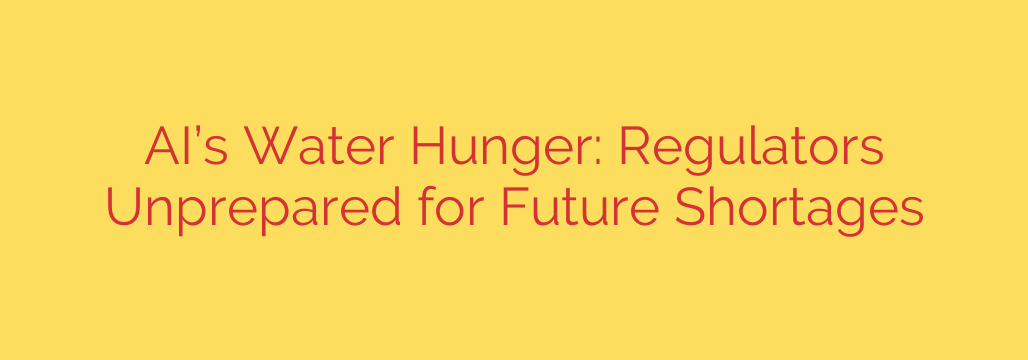
The rapid expansion of Artificial Intelligence is creating an unexpected and significant challenge: a dramatic increase in water consumption. This isn’t just about the electricity needed to power powerful computers; it’s fundamentally about the cooling systems required to keep these processors from overheating. Modern data centers, the physical backbone of AI and other advanced computing, use vast amounts of water, primarily for evaporative cooling towers.
As AI technology becomes more sophisticated and widespread, the demand placed on water resources is projected to grow exponentially. Training complex AI models or running generative AI applications consumes far more water than traditional computing tasks. This hidden thirst is becoming a major concern, particularly in regions already facing water stress or potential future shortages.
Experts and environmental advocates are highlighting the urgent need to address this issue. Currently, there is a significant gap in regulatory frameworks and public awareness regarding the environmental impact of AI’s water hunger. Many data centers operate without stringent reporting requirements on their water usage, making it difficult to track the true scale of the problem and plan effectively.
The lack of preparation among regulators means that as AI proliferates, its growing water footprint could exacerbate existing water scarcity problems. This necessitates proactive measures from both the tech industry and government bodies. Developing more water-efficient cooling technologies, exploring alternative cooling methods like direct-to-chip liquid cooling or immersion cooling, and implementing transparency in water consumption reporting are crucial steps.
Furthermore, policy makers must begin incorporating AI’s water needs into long-term water resource management plans. Ignoring this issue risks significant environmental consequences and potential conflicts over precious water supplies in the years to come. The future of sustainable technology hinges on addressing these critical environmental dependencies head-on.
Source: https://datacentrereview.com/2025/06/ai-boom-leaves-environment-agency-in-the-dark-over-future-water-shortages/








